Shape identification Extra Challenge Geometry Worksheets for Ages 5-9
5 filtered results
-
From - To
Unlock the wonders of geometry with our "Shape Identification Extra Challenge" worksheets designed for ages 5-9! Perfect for young learners eager to master shapes, these printable resources offer extra challenges to enhance their geometry skills. Kids will love identifying, naming, and understanding various shapes while building a strong math foundation. Engaging activities and colorful illustrations make learning fun and effective. Ideal for parents and teachers looking to boost their children’s spatial awareness and problem-solving abilities. Download now and let the geometric adventures begin with Kids Academy!
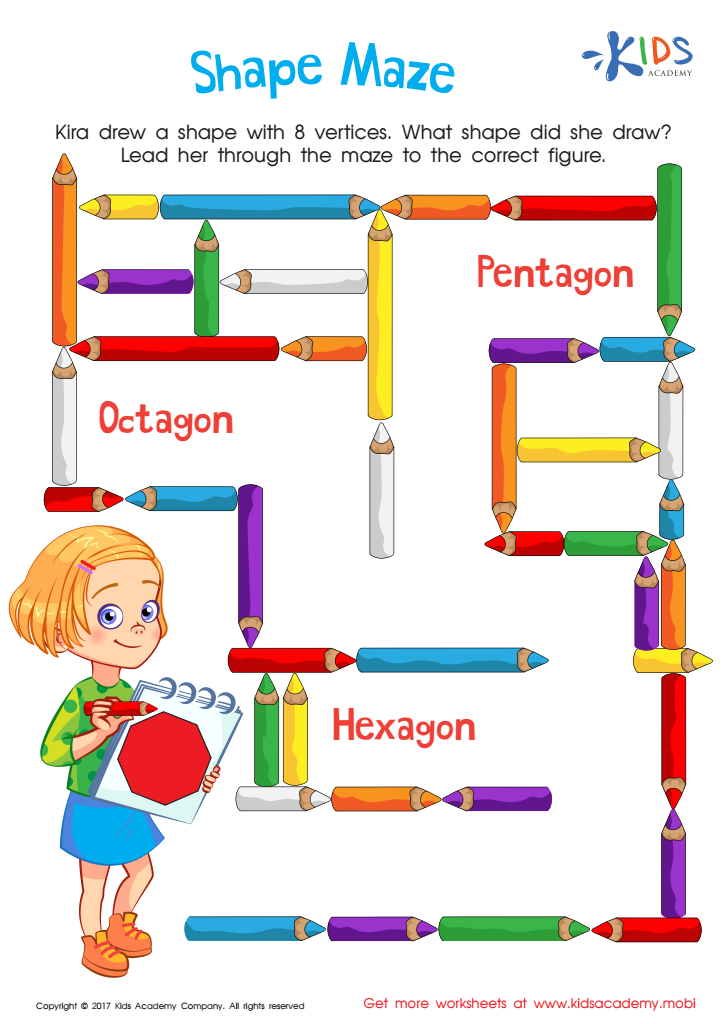

Shape Maze Worksheet
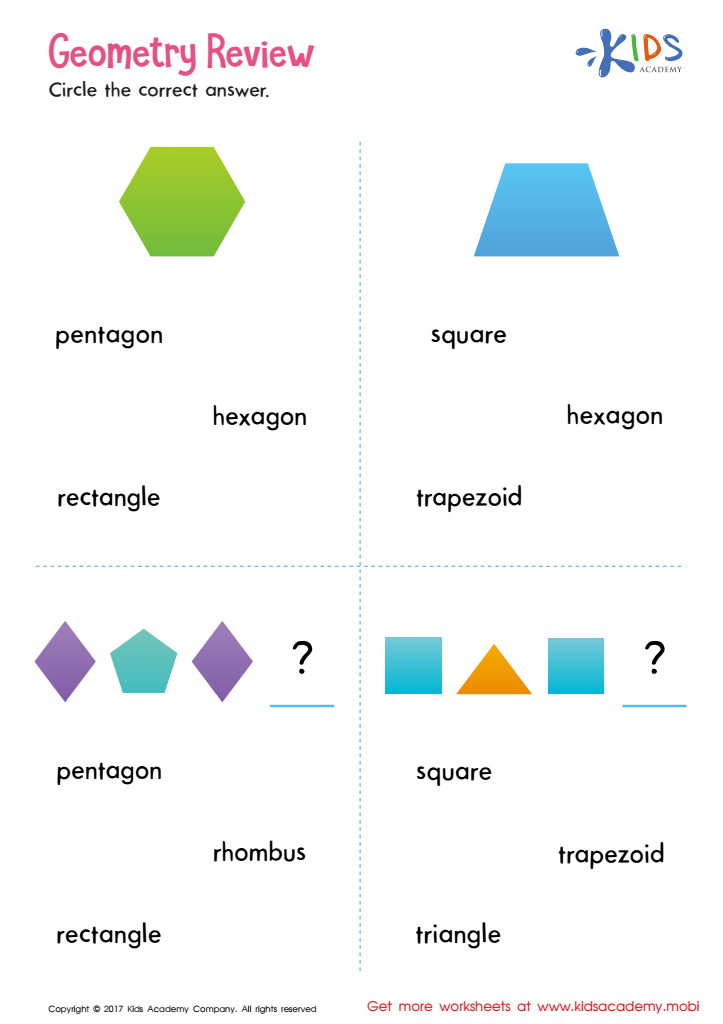

Geometry Review Printable
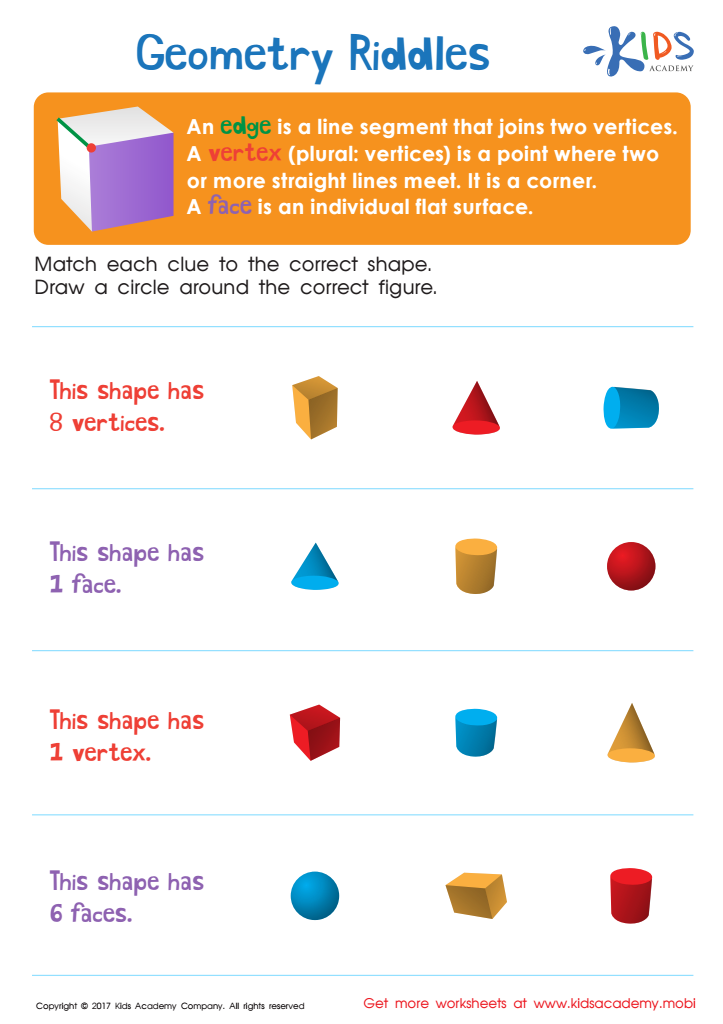

Geometry Riddles Printable
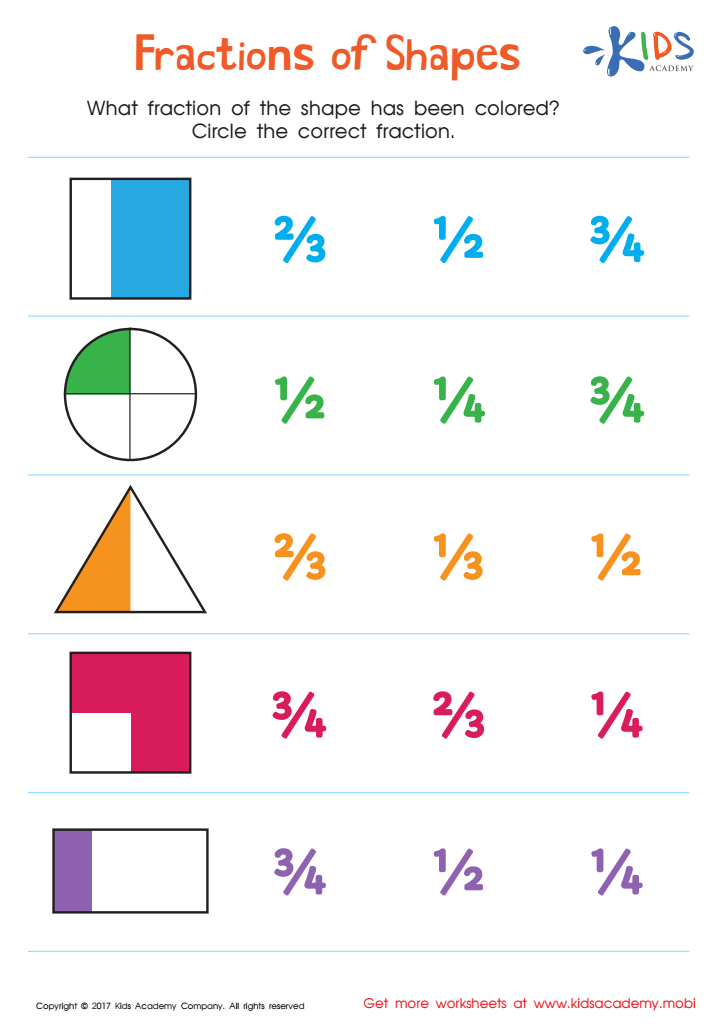

Fractions of Shapes: Math Concept Worksheet
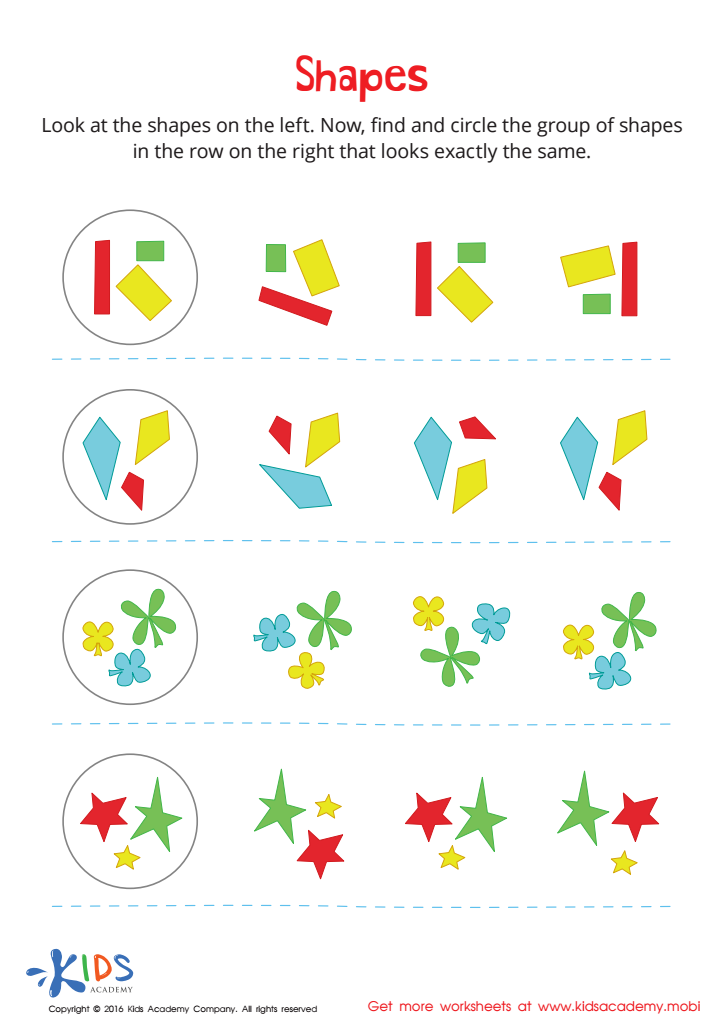

Shapes Worksheet
Parents and teachers should prioritize shape identification and extra geometry challenges for children aged 5-9 because these foundational skills are crucial for cognitive development. First, understanding shapes enhances a child's spatial awareness, which is essential for tasks such as reading, writing, and problem-solving. Recognizing and comparing shapes helps develop critical thinking and observational skills, promoting logical and sequential thinking.
Additionally, geometry challenges nurture a child's ability to visualize objects in different orientations and understand how shapes relate to one another. This foundational knowledge is crucial for future mathematical concepts, including arithmetic, algebra, and higher-level geometry.
Early engagement with shapes also supports fine motor skills as children draw, trace, and manipulate different forms. These activities help develop hand-eye coordination and precision, which are valuable for tasks ranging from writing to playing sports.
Moreover, shape identification and manipulation encourage creativity and artistic expression. Children who explore geometry frequently engage in constructing and designing, fostering an innovative mindset.
By introducing shape identification through engaging challenges, parents and teachers provide children with tools for success not only in academics but in everyday problem-solving and creative endeavors. This strong mathematical foundation can lead to increased confidence and curiosity, essential traits for lifelong learning.
 Assign to My Students
Assign to My Students






























